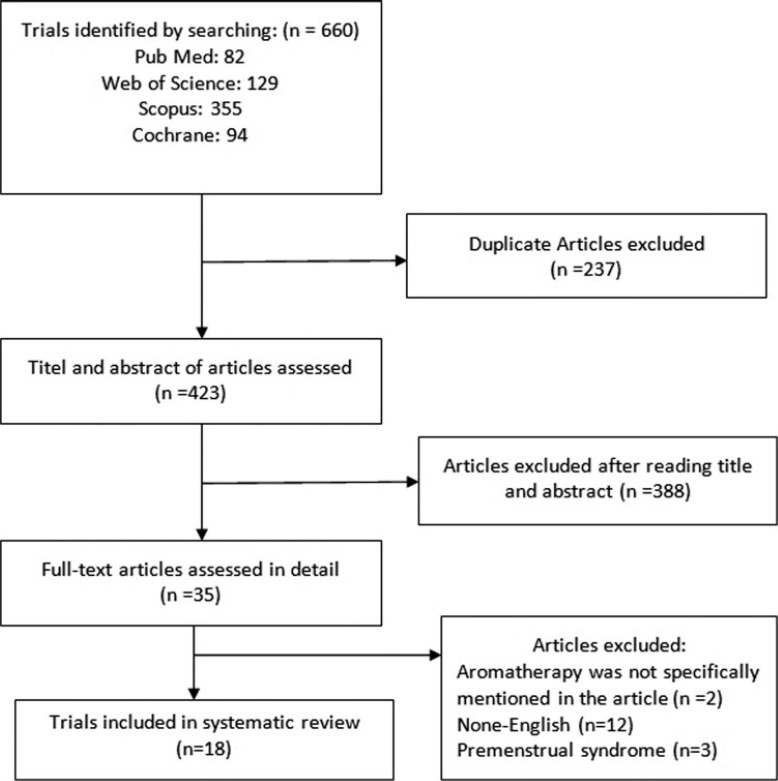Revista Brasileira de Ginecologia e Obstetrícia. 2021;43(12):968-979

The aim of the present systematic review meta-analysis is to assess the effect of olfactory stimulation on reducing dysmenorrhea.
Systematic search was conducted in several databases, such as PubMed, Web of Science, Cochrane, and Scopus, to identify relevant research up to October 26, 2019. The identified studies were evaluated based on a modified Jadad scale. The intervention involves aromatherapy alone or in combination with essential oils. There was no restriction for the control group such as a placebo group or other common treatments. The Comprehensive Meta-Analysis Version 2 (Bio stat, Englewood, NJ, USA) was used for meta-analysis. Cochran’s Q and I2 tests were utilized.
The findings of our meta-analysis, which contained 13 trials (15 data), showed that dysmenorrhea decreased significantly in the group receiving aromatherapy with herbal compared with the control group (standardized mean difference [SMD] =-0.795; 95% confidence interval [CI]: -0.922 to- 0.667; 17 trials O < 0.001); heterogeneity; I2 = 19.47%; p = 0.236). In addition, four studies with insufficient data were not included in our meta-analysis. The results of all studies suggested that aromatherapy with herbal medicine group compared with control group is effective.
Aromatherapy with herbal medicine decreased dysmenorrhea. This treatment was particularly effective when aroma oil was combined with massage or when a mixture of aroma oil was used for the treatment of dysmenorrhea.
Search
Search in:


Comments